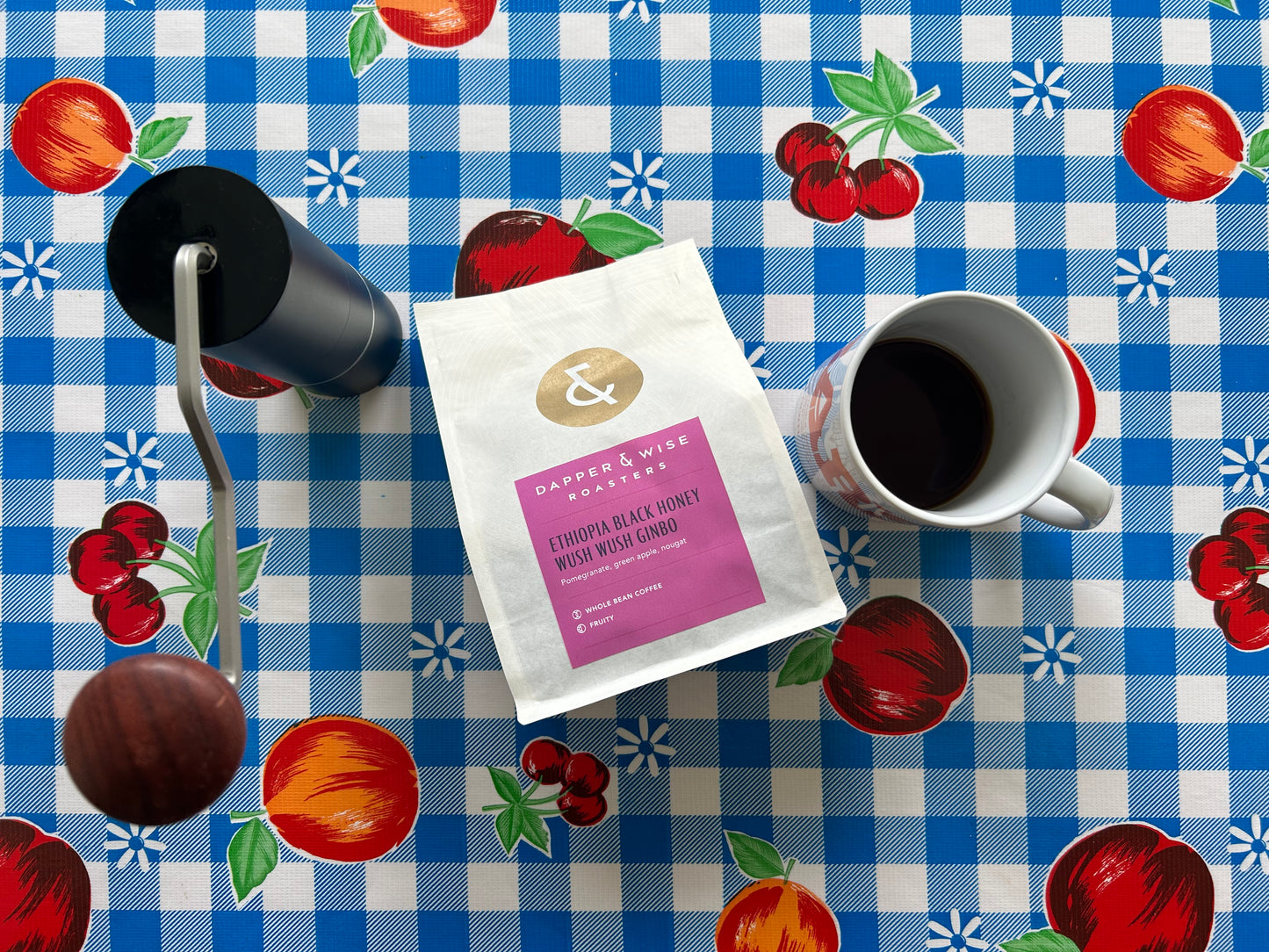
Joey, our Director of Coffee, is back to share a look behind the scenes of D&W operations - upcoming coffees, fun coffee education, and maybe every now and then some of our thoughts on this coffee industry as a whole. I guess it's not surprising that there is a lot to think about when it comes to coffee, something that involves the participation of tens of millions of people, has played a role in geopolitics since the 15th century, and moves from a small farm to someone's kitchen counter on the other side of an ocean.
Let's start things off with a little introduction of our newest addition to our line up, a black honey process coffee from Ethiopia, our Black Honey Wush Wush Ginbo.
Dinkalem Ademe is the owner of the washing station where about 2,500 smallholder farmers deliver their freshly picked cherry for processing. Dinkalem’s washing station is found in the Keffa zone, in Western Ethiopia.
This lot is the result of careful and intentional post harvest sorting and processes, creating a beautiful coffee with a heavy body, and subtle, but present jammy fruity notes. Once the cherries are delivered to the washing station, they are hand sorted for color, removing much of the under and over ripe cherries, followed by a quick dip in the pool, aka cherry floating. When submerged in a tank of water, the more dense (tastier) cherries will sink to the bottom, so by skimming off the floaters, the denser cherries remain to move onto the next steps. These cherries undergo another round of hand sorting, then they’re off to be pulped, a process which separates the parchment from the cherry skin. For this lot, the cherries are pulped to intentionally leave a bunch of the mucilage on the parchment. This is what the ‘black honey’ refers to - thanks to the sticky mucilage, the parchment takes on some dark/blackish splotches. So no, despite the fun name, no honey was harmed in the making of this coffee. They’re then fermented, then dried on shaded raised beds until they achieve the ideal moisture content that makes them shelf stable, foodsafe, and ready for their ocean voyage to Dapper & Wise!
But wait! There’s more!
Remember how the lower density floating cherries were skimmed off? What happens to those? It doesn’t make sense to throw them away, as this would be wasteful, and minimizes the amount of money that the washing station brings in. Afterall, even though these cherries are lower quality, they can cost the farmer the same to produce. Our importing partner shared that these coffees are sold in the local market in Ethiopia, for local consumption. Let’s think about this for a second! The higher quality coffees are exported out of Ethiopia and into the USA, while the lower quality coffee remains in Ethiopia. Things get complicated as soon as we try to understand why this is the case, having to do with things like foreign exchange, neoliberalism, and colonialism. At D-dub, we’re by no means experts in any of these topics, however, we recognize that this is simply not fair, and that people in Ethiopia deserve to drink the highest quality coffees produced in their country, more so than us in the USA.
We’re doing our best to continue learning, with the ultimate goal of being the best coffee buyer we can. Questions, concerns, suggestions for resources? Reach out! In the meantime, we’re grateful for this delicious coffee, and look forward to sharing it with you.
